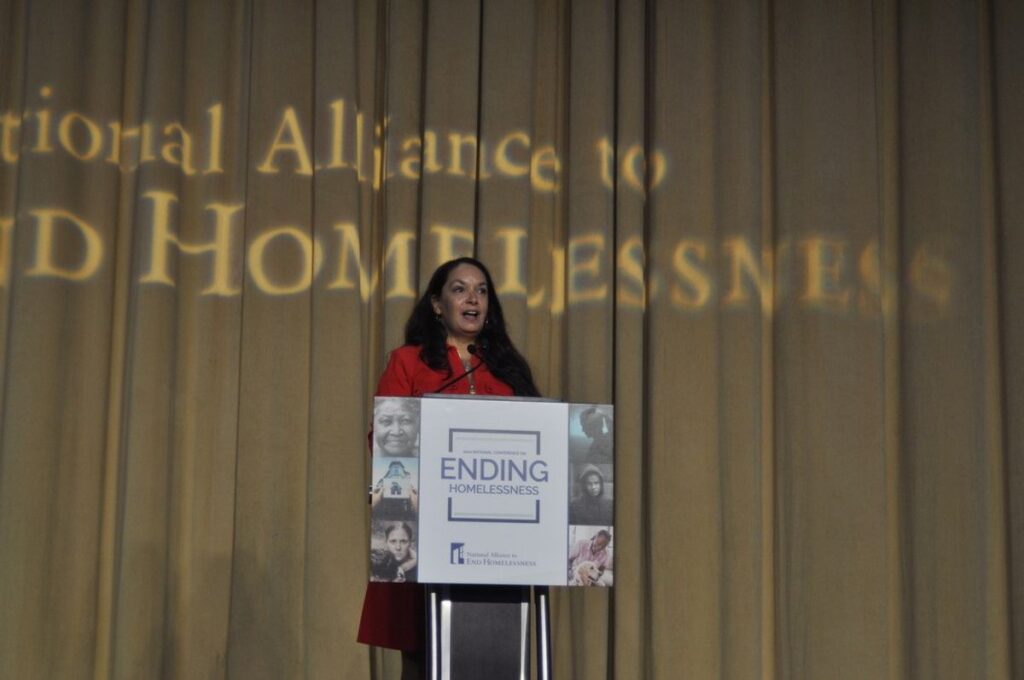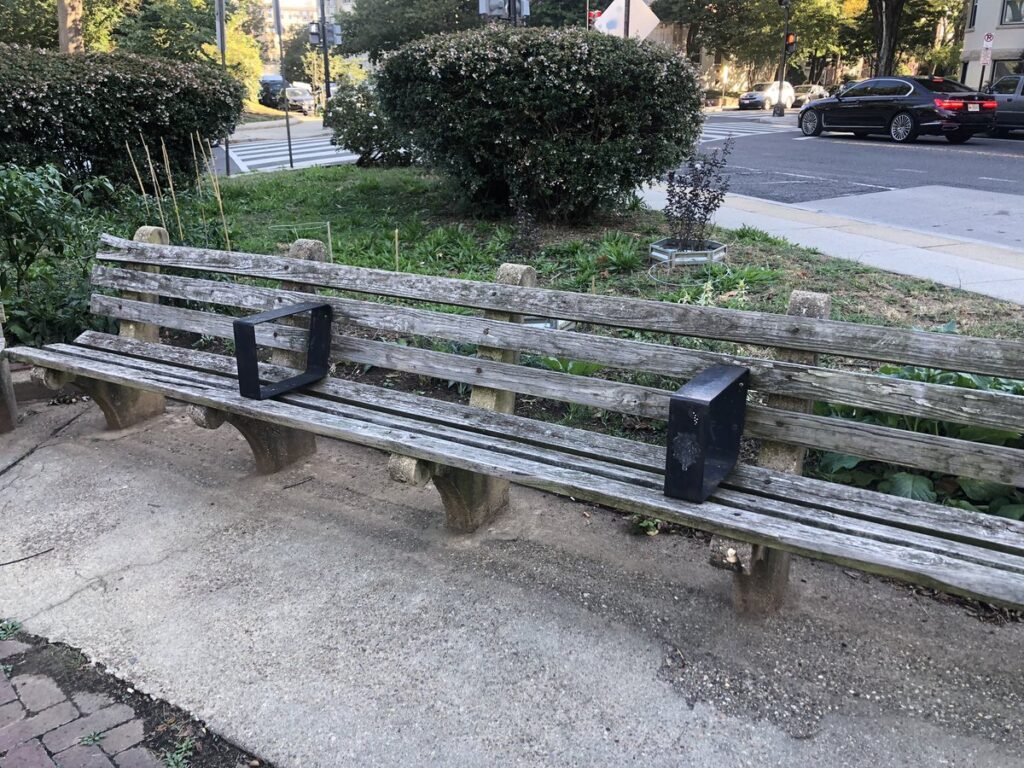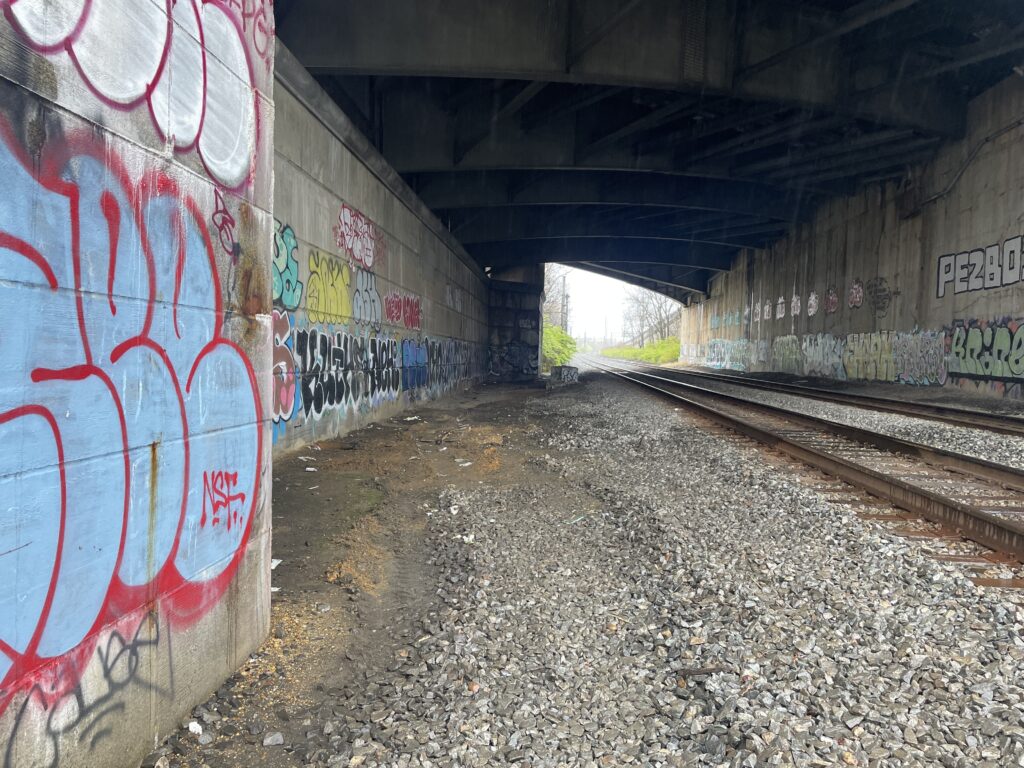Ending homelessness is not just a job for Ann Oliva, the new CEO of the National Alliance to End Homelessness (NAEH).
Oliva’s parents came to the United States from Cuba with one young child and another on the way. They left Cuba seeking asylum with just one suitcase, Oliva shared in her introduction to the NAEH at the organization’s annual conference, but the help they received when they arrived shaped her family for years.
“Ending homelessness is both personal and professional for me,” she said.
Oliva succeeds Nan Roman, who has led the NAEH for over 20 years. Oliva is the first Latina to head a national organization devoted to ending homelessness and brings experience from the U.S. Department of Housing and Urban Development, The Community Partnership in D.C., and advocacy and policy organizations.
A new leader wasn’t the only change at NAEH’s annual conference held July 25-27 in D.C. The organization pledged to center racial justice and equity in their work and asked local organizations to elevate people with lived experience to all levels of leadership. The group is focused on ending unsheltered homelessness and homelessness for older adults, Oliva said, and changing the often-derogatory public understanding of what it means to be unhoused.
The NAEH is a national organization that connects service providers, governments, advocates and people with lived experience. In addition to advising local organizations, the NAEH serves as policy advocates at the national level.
In her opening address at the conference, Oliva asked attendees to think about how their own practices exacerbate racial inequities. Nationally, people of color are overrepresented in the population experiencing homelessness due to centuries of racist housing and income policies. The homeless services system was not fully engaged in racial justice work before the pandemic, Oliva said, but the topic permeated sessions over the three-day conference. Panelists encouraged providers to employ staff that looks like the population they serve, implement training on cultural sensitivity and distribute vouchers and other housing resources to promote racial equity.
Another theme woven throughout the conference was how to include people with lived experiences of homelessness in decision-making. While some providers have advisory boards or positions, few have given over power to lived experts. To encourage progress, Oliva announced NAEH staff will only speak at events if people with lived experience are also featured.
Attendees discussed this year’s successes. For many regions, new federal emergency housing vouchers were a first chance to prioritize unhoused people for vouchers. (D.C. and other jurisdictions do this through permanent supportive housing). Oliva will push for more, with an ultimate lofty goal of making vouchers universally available to people who qualify for them.
New ideas were aplenty. Service providers touted the success of shared housing programs, streamlining voucher applications, landlord incentives, master leasing units, giving people cash and working with the foster care and penal systems to prevent homelessness before it occurs.
These are some ideas that could be implemented nationwide as regions face challenges of increasing unsheltered homelessness and a dearth of affordable housing, Oliva said.
“We’re changing and growing, but we’re still here doing the work and trying to do better,” Oliva said. “If we’ve learned anything over the past two years it is hopefully that we are more powerful when we work in unity and towards justice.”
Annemarie Cuccia covers DC government and public affairs through a partnership between Street Sense Media and The DC Line. This joint position was made possible by The Nash Foundation and individual contributors.








